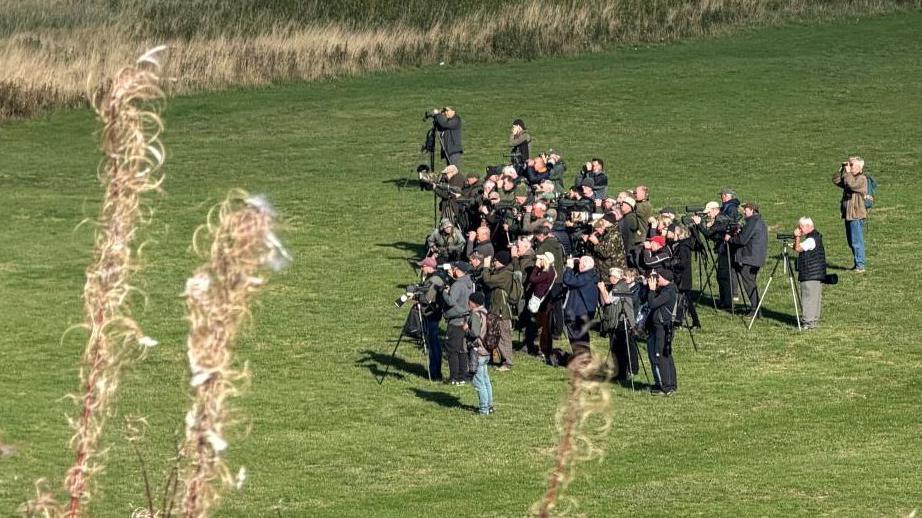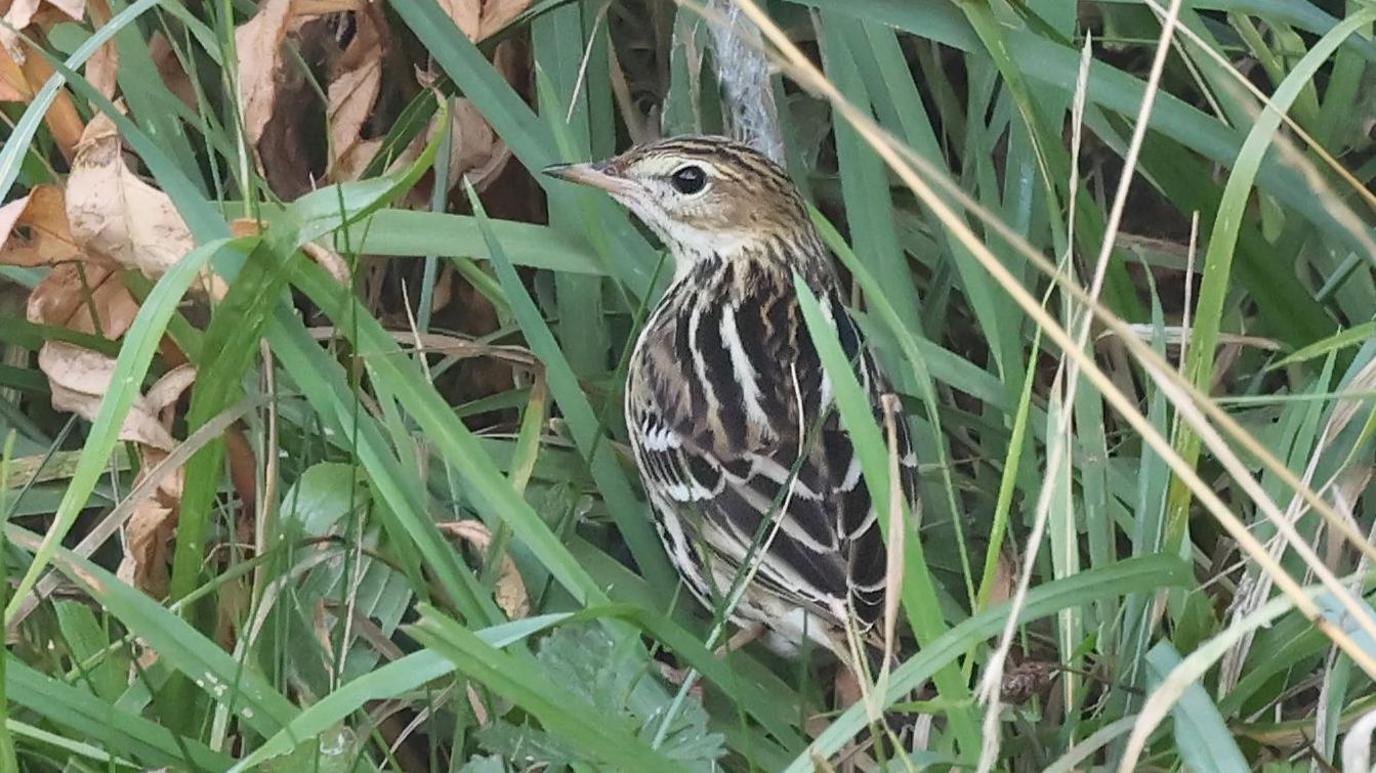Bird watchers flock to spot rare Asian visitor

Birdwatchers gathered on The Leas in South Shields on Monday
- Published
Crowds of birdwatchers have descended on a seafront to catch a rare glimpse of a Pechora pipit.
Despite the species usually breeding in the tundra of the far north of Russia before migrating to countries in south-east Asia, such as Indonesia and Malaysia, one somehow ended up on The Leas in South Shields.
Onlookers armed with binoculars and cameras were delighted to spot the bird that is ranked as "very rare" by the British Trust for Ornithology (BTO).
One local birdwatcher, Stuart, said: "I've seen some good birds here over the years but I think this tops them all."
He told BBC Radio Newcastle: "This is part of my patch, I walk it every day but I didn't find it unfortunately."
Another birdwatcher, Fozzy, said he travelled more than 100 miles (161km) from Wakefield to get a glimpse.
"To have one on the mainland is as rare as golddust," he said.

Birdwatchers in South Shields managed to snap pictures of the visiting Pechora pipit
Nick Moran from the BTO said it was a species birdwatchers on the UK mainland "very, very rarely" got to encounter.
"That's why it's generating so much excitement," he said.
There have only been three sightings of Pechora pipits in northern England and the last one was on the Farne Islands in 1995, he said.
"It's quite a long way from where it's bred and even further from where it should be going to spend the winter."
He also said it was challenging to get a good picture of the "skulking, reclusive" bird.
"They're reluctant to fly, they're notoriously keen to stay on the ground.
"So they're really hard to observe and get a good view of which is another thing which makes them so appealing to birders."
Follow BBC North East on X, external, Facebook, external, Nextdoor and Instagram, external.
Get in touch
Do you have a story suggestion for BBC Tyne?